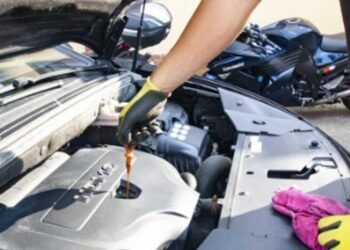A Vehicle Identification Number (VIN) is a 17-digit code that is unique to each motor vehicle. Trailers, much like cars, have their VINs too. This article explains where you can find the VIN on a trailer, why this code is so important, and what to do with it.
The Importance of the VIN Number
If you plan on purchasing a trailer in the near future, it is highly recommended that you do a trailer VIN lookup before sealing the deal. This code can provide you with valuable information about its previous ownership, maintenance history, and factory specifications.
The identification number can tell you about the vehicle’s original equipment manufacturer (OEM), as well as its model year, body type, engine size, and transmission type. It also provides clues on where and when the trailer was made, which can help you determine its resale value.
You can also use a vehicle’s VIN to find out if it has ever been in an accident or if it has been recalled. Insurance companies use this information to decide how much to charge for coverage. You can be sure that your investment is safe if you know the trailer has never been damaged or had safety problems.
Finally, knowing the VIN of a vehicle before you purchase it may save you from possible fraud. The code can be used to verify if a vehicle has been stolen or altered in any way. Also, if the car has a warranty, it may help protect you from being overcharged for repairs or services.

Where to Find the VIN on a Trailer
There is no standard location for the code on trailers; therefore, different manufacturers may choose different spots. Check the following locations:
- The Tongue;
- Near the Axles;
- The rest of the frame;
- Inside the door (travel trailers or campers);
- Inside the cabinets (campers).
Note that really old vehicles may not have a VIN since this standard was enforced in the 1980s. So, if the vehicle in question is older, then it probably doesn’t have one.
Next Steps When You Have the Code
If you found the code, there are several things you can do next to check it. First, there are online services that allow you to do a VIN check. Some of them are free, or they offer a basic report for free. You can also get a detailed history of the vehicle for a fee.
Second, you can call or visit your nearest Department of Motor Vehicles (DMV) office to look up the trailer’s ownership history, accident history, or theft history. Most DMV offices can provide this service, but they may refer you to the main office. Depending on the state you live in, you may be charged a small fee.
Finally, you can check the VIN with the National Insurance Crime Bureau. Using information provided by auto insurers, NICB allows up to five VIN checks per IP address per day.
Hopefully, this article helped you understand why you should always check the VIN before purchasing a vehicle. And because finding the VIN on a trailer can be more difficult than on a car, now you know which spots you should check.












